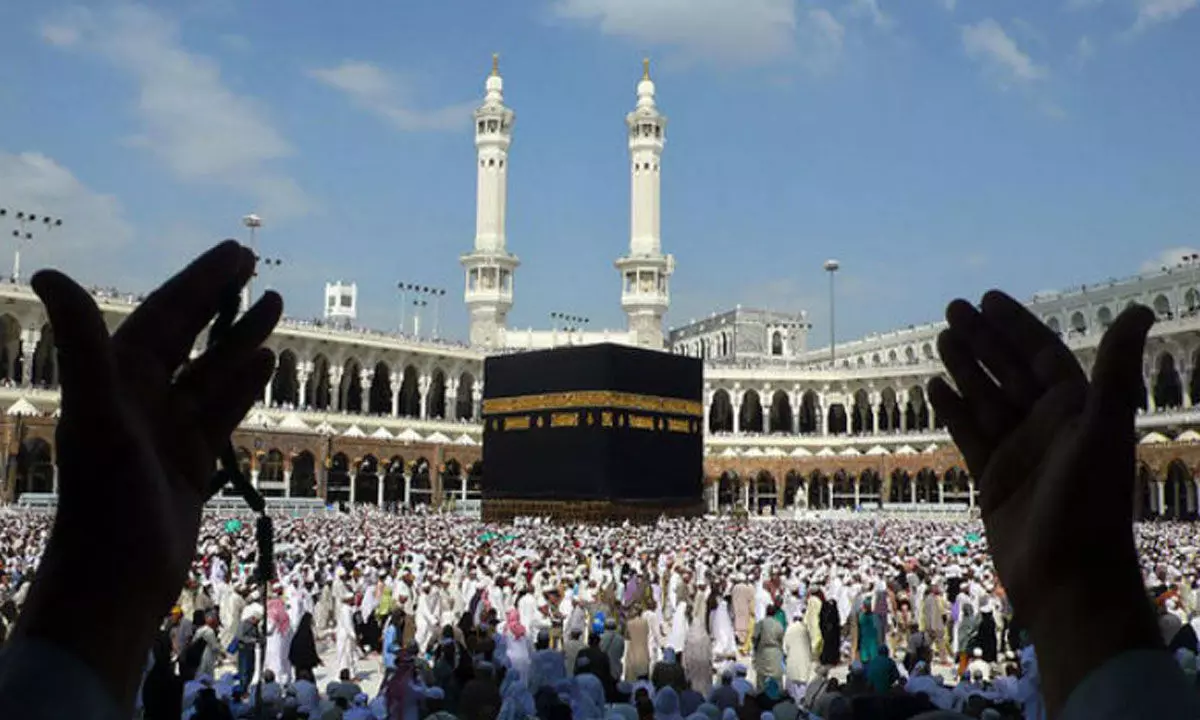Health And Security Advice For Hajj Amidst Covid-19 From International SOS

For representational purpose
International SOS, the world’s leading health and security risk management services company, is providing advice on health and security preparations for the annual Islamic Hajj pilgrimage to the holy city Mecca in Saudi Arabia (7-12 July).
MUMBAI: International SOS, the world's leading health and security risk management services company, is providing advice on health and security preparations for the annual Islamic Hajj pilgrimage to the holy city Mecca in Saudi Arabia (7-12 July). One million people will be permitted to participate in the Hajj pilgrimage. This is the first Hajj season since the onset of the COVID-19 pandemic in 2019-2020 in which foreign nationals residing outside of the kingdom will be permitted to participate in. All pilgrims must present proof of vaccination status and a negative polymerase chain reaction (PCR) test result taken no more than 72 hours prior to departure for the kingdom.
Dr Olivier Barles, Regional Medical Director at International SOS in Dubai, advises:
"Even if the COVID-19 pandemic seems to be under control, from end-May to early June a certain re-occurrence of new cases has been noticed in many countries worldwide, including in Saudi Arabia. Hence, even for those that have been fully vaccinated, pilgrims should continue to adhere to personal precautionary measures in order to best protect themselves from the potential threat all the COVID-19 variants. They are still advised to keep safe distance between each other, to wear face masks and maintain a high degree of personal hygiene by washing hands frequently. It is also important to follow the regulations outlined by the Ministry of Health in Saudi Arabia and to pay attention to other known diseases prevalent in the region, including Middle East Respiratory Syndrome Coronavirus (MERS-CoV) that can be managed with practical attention to hygiene. Wellness measures to cope with environmental issues, such as the extreme heat should also be implemented. Always choose clean, well-cooked food and safe beverages, including bottled water and pasteurised milk. Also, take measures to stay hydrated and cool to avoid heat-related illnesses."
Sally Llewellyn, Regional Security Director at International SOS in Dubai, said:
"Pilgrims undertaking Hajj should closely follow government directives and ensure they have obtained the correct approvals prior to departure. Utilise the services of a government-approved and trusted pilgrimage organiser that has the appropriate vehicles in place. Visitors to Saudi Arabia who are not participating in Hajj should be mindful of heightened cultural sensitivities and abide by all movement restrictions, including restricted access to select airports."
International SOS' top advice for Hajj during COVID-19:
· Wear a face mask at all times and maintain a distance of at least two metres between yourself and others.
· It is important to follow good hygiene measures including regularly washing your hands and immediately disposing of used masks and gloves safely.
· Ensure you comply fully with all government requirements.
· Ensure any health issues are stabilised. If you need any medication, pack enough for the trip, with some extra in case of delays.
· Save emergency contacts on your mobile phone and make sure it is charged (police, ambulance, embassy and local contacts).
· Monitor the situation and remain abreast of the latest news and recommendations.
· Exercise heightened caution with regards to religious and cultural sensitivities, especially on social media platforms and respect all local legal, religious and cultural conventions at all times.
· Expect tighter security at transport hubs as well as increased traffic and congestion.
· If conducting the pilgrimage, comply with your Hajj operator's instructions. There are set times for different operators organised by Saudi Arabian authorities to minimise the potential for overcrowding. While completing your pilgrimage, be mindful of your belongings when moving throughout the crowds.
· Stay well hydrated to avoid heatstroke. Select safer food and beverages – use bottled water. Wash fruits and vegetables well. Ensure any meat is thoroughly cooked and avoid non-pasteurised dairy items.
· Pay attention to people who may look sick; again, keep your distance wash your hands frequently and avoid touching your face.
· Avoid direct contact with animals, including camels. A potentially severe illness caused by another Coronavirus, the Middle East Respiratory Syndrome Coronavirus (MERS-CoV), can be present in camels and their products.
About the International SOS Group of Companies
The International SOS Group of Companies is in the business of saving lives, protecting your global workforce from health and security threats. Wherever you are, we deliver customised health, security risk management and wellbeing solutions to fuel your growth and productivity. In the event of extreme weather, an epidemic or a security incident, we provide an immediate response providing peace of mind. Our innovative technology, and medical, security and logistics expertise focus on prevention, offering real-time, actionable insights and on-the-ground quality delivery. We help protect your people, your organisation's reputation, as well as support your compliance reporting needs. By partnering with us, organisations can fulfil their Duty of Care responsibilities, while empowering business resilience, continuity, and sustainability. Founded in 1985, the International SOS Group, headquartered in London & Singapore, is trusted by 9,500 organisations, including the majority of the Fortune Global 500 as well as mid-size enterprises, governments, educational institutions, and NGOs. 13,000 multi-cultural security, medical, logistics experts stand with you to provide support & assistance from over 1,000 locations in 90 countries, 24/7, 365 days.














